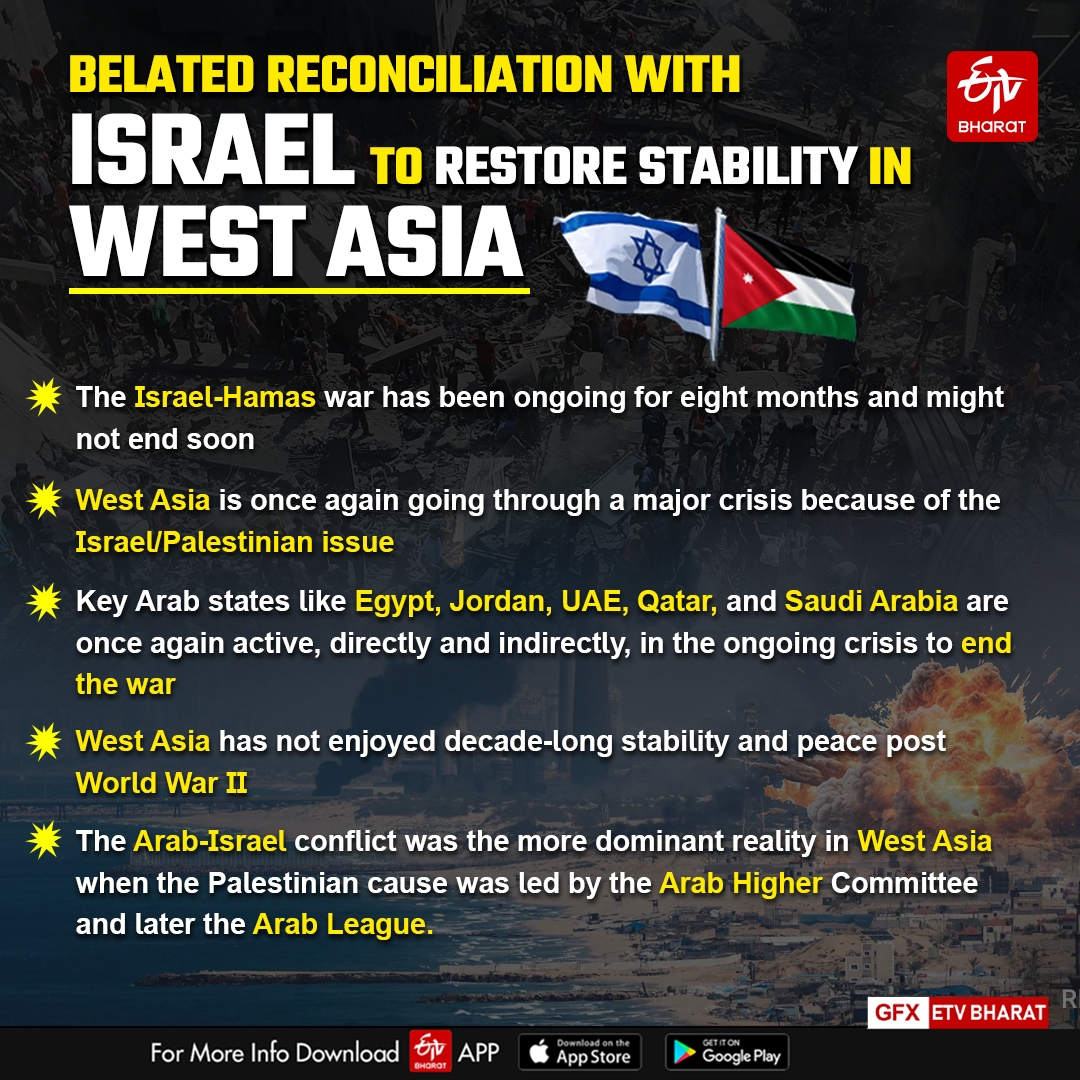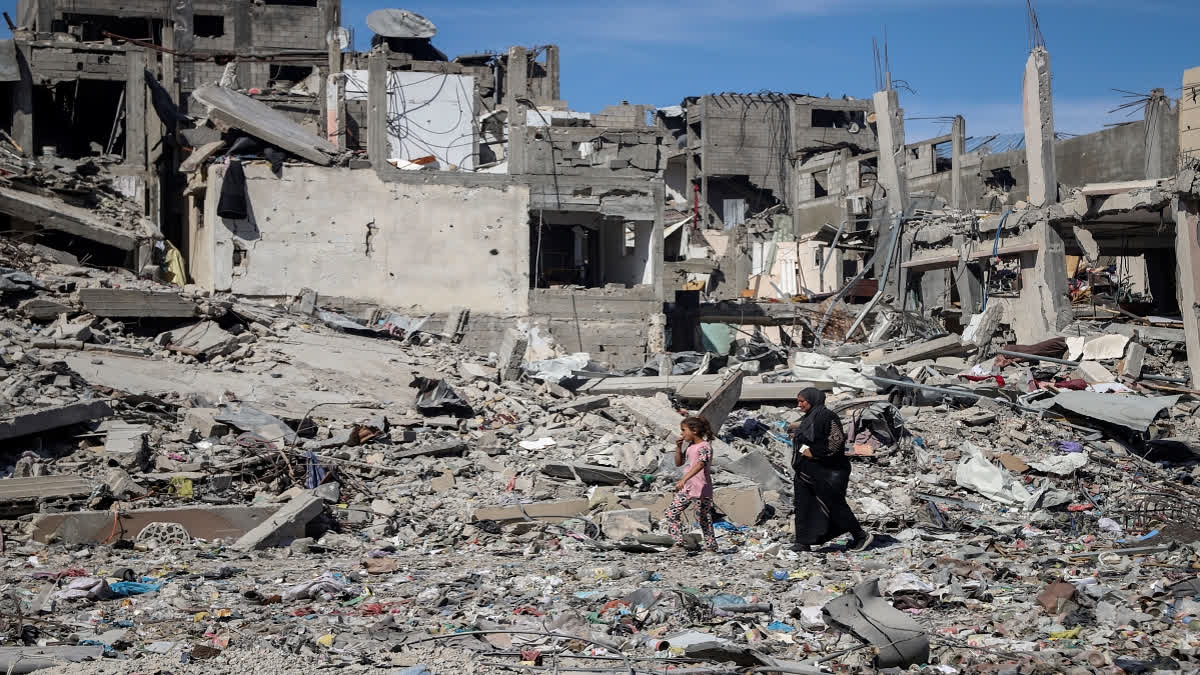The Israel-Hamas war has been ongoing for eight months and might not end soon. West Asia is once again going through a major crisis because of the Israel/Palestinian issue. Since 1948, Arab states have been deeply involved in the Palestinian issue but failed to lead them to the realisation of a state.
Key Arab states like Egypt, Jordan, United Arab Emirates (UAE), Qatar, and Saudi Arabia are once again active, directly and indirectly, in the ongoing crisis to end the war. What is their aim, and can they stabilise the region when Israel and the Palestinians are far away from a ceasefire?
West Asia has not enjoyed a decade-long stability and peace post World War II. Before October 7, many positive developments took place, like the restart of the diplomatic relations between Saudi Arabia and Iran with the mediation facilitated by China, the US-led Abraham Accords that normalised Israel’s diplomatic relations with UAE and Bahrain, a multilateral forum of I2U2 (India, Israel, United States and UAE) and the India-Middle East-Europe Economic Corridor.
In addition, a historic reconciliation and normalisation of relations between Saudi Arabia and Israel was, and still is, in the making. With these many events and ideas, West Asia appeared to move beyond the unresolved Israel-Palestine conflict. Hamas's barbaric attack on Israeli civilians was one of the most disruptive events for the Arab states on October 7, and they are trying hard not to let the region be swallowed into this phase of the conflict. Hamas and the current leadership in Israel appear far from the concerns of the Arab states.
Hamas is still holding 130 plus Israelis as hostages, and Israel is adamant about carrying on with the military operations in Gaza. Hamas is a fanatic and fundamentalist entity that doesn’t believe in the two-state solution and the legitimacy of the State of Israel in West Asia. Rather than the internationally known Palestinian flag, it carries a green flag boasting its Islamist ideology, which leaders like Yasser Arafat rejected.

On the other hand, the current leadership of Israel, Benjamin Netanyahu, the Prime Minister, and his far-right coalition partners do not want to accept that their iron-fist approach and massive military response have been futile in rescuing hostages from Gaza or defeating Hamas in the last seven months of the war.
Their outright rejection of political solutions with the Palestinian Authority or to accept the need for the two-state solution is a growing concern for many of its strong allies like the United States and its current President, Joe Biden. Arab states like Egypt, Jordan, UAE and Saudi Arabia, which are close allies of the US, have also been supportive of Israel since October 7 because they do not wish Hamas and its current patron, Iran, to take the region on an unpredictable path.
Arab reconciliation and peace with Israel
The Arab-Israel conflict was the more dominant reality in West Asia when the Palestinian cause was led by the Arab Higher Committee and later the Arab League. It is interesting how Arab states made peace with the State of Israel over the decades and now seem very keen to see the implementation of the two-state solution that they once rejected outright when the United Nations passed it as a legitimate solution to the Israel-Palestine conflict in 1947.
Egypt and Jordan made peace with Israel in 1978 and 1994, respectively, as each actor realised its national interest in having peace with Israel. Saudi Arabia, a prominent Arab actor in the region as well as in the global Muslim world because it is the custodian of Mecca and Medina, has been keen to have peace with Israel since 2002 with its Arab peace plan.
The Saudi reproachment with Israel has a lot to do with its security pact with the United States and creating a coalition against Iran. Still, the fact that Saudi Arabia would normalise relations with Israel is historic as it will further open gates for Israel with other countries of the region like Qatar and Oman, as well as other Muslim-dominated nations of Pakistan, Malaysia, and Indonesia.
The foreign minister of Saudi Arabia, Prince Faisal bin Farhan bin Abdullah, made headlines three days ago when he spoke candidly about his growing frustration with Benjamin Netanyahu and the Israeli establishment that refuses a two-state solution. He was part of the ministerial-level meetings between several Arab and European states in Brussels on 26 May.
Saudi Arabia and other Arab states appear to be failing to influence the decision-making of Hamas even when Qatar threatened to expel the top leadership of Hamas from Doha last month. With this glaring limitation, they may have little leverage over Israeli leaders for compromise. Their belated reconciliation with Israel, which should have been a turning point from the historical perspective, is too late and without much force.



